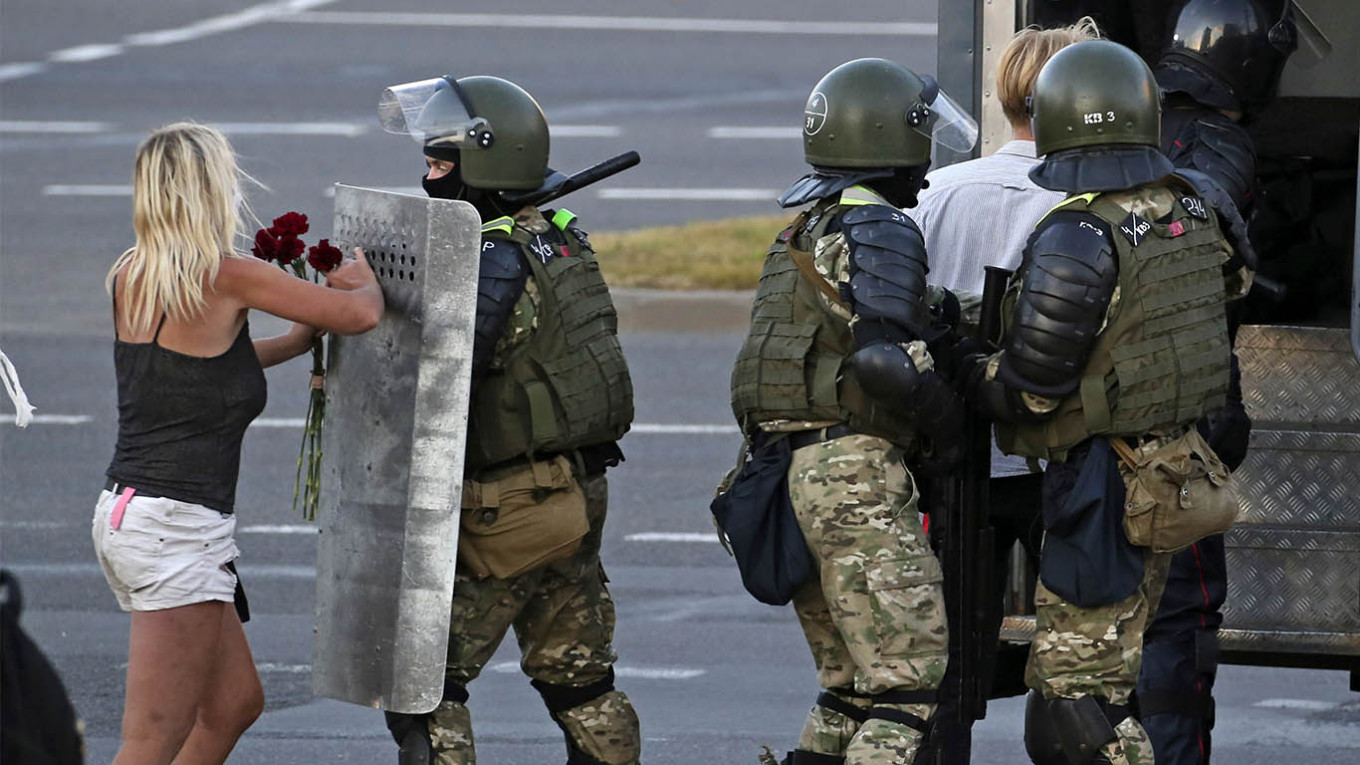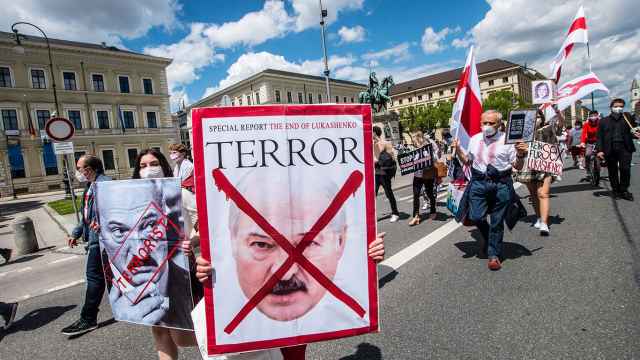Tens of thousands of peaceful demonstrators in Belarus have gathered in recent days to protest President Alexander Lukashenko’s disputed victory and the violent police crackdown that followed.
Belarusians formed human chains in cities including Minsk, many wearing white and holding flowers, to protest against police brutality during the four nights of unrest after Sunday’s vote. Official statements Thursday suggested a more conciliatory approach following the public outrage toward extreme police violence, which included shootings and beatings.
Russian media have also taken an increasingly sympathetic tone toward protesters, even as the Russian Foreign Ministry said the protests showed "clear attempts at outside interference."
Here’s a look at how columnists for Russia's widely read pro-Kremlin press have covered the recent nights of protests:
— Izvestia, “How Women Seized the Belarusian Protests”:
“There were no slogans or cheers today. Besides being pointedly peaceful, the demonstration was also quiet. ... There was no cause for concern, there were no police cars along the entirety of the procession route.”
“Violence has noticeably decreased at the night protests. Security forces also adopted a new strategy and stopped noticing small clusters of people.”
“The helmets hid them, but I’m sure there were smiles underneath. The riot police are tired of nights of protest too.”
— Argumenty i Fakty, “Demonstrators ID'd as Parasites. How Did the Latest Protests in Minsk Go?":
“The country has begun to return to normal life. There were almost no violent confrontations with security forces on the streets at night, the protesters did not erect barricades and did not shoot fireworks at police. Detentions were surgical.”
“Still, it’s clearly premature to say that the protests have completely ended. The actions are continuing, but in a new format.”
— Komsomolskaya Pravda, “Lukashenko’s Salvation Is New Polls. Otherwise, It’s Only the Beginning”:
“The protests speak to one thing: we need repeat elections. If they aren’t held (and I’m not sure Lukashenko will go for it), then the situation won’t be resolved. ... I predict an escalation in Minsk this weekend.”
“Yesterday, I saw people being simply snatched from bus stops. ... Today, the situation has changed drastically and the people think one thing: it means we held out, we endured. ... If the government thinks that the people will relent and go home, that’s not what will happen.”
“If the Central Election Commission says there are too many violations and we’ll cancel the elections, that would be most lifesaving for Lukashenko. ... It’s better that he participates in the next elections than remain without them whatsoever. ... If Lukashenko continues to live the old way, then the situation will again meet a dead end.”
— Moskovsky Komsomolets, “Russian Observers as Accomplices to the Lukashenko Regime”:
“If we call Russian parliamentarians who monitored the Belarus presidential elections accomplices of the Belarusian authorities, it’s not offensive. What offense can there be if they participated in a good, noble, worthy cause and not a crime? That is, if they’re to be believed.”
“If these respected gentlemen are to be believed, then the protests broke out and are breaking out over nothing. Not believing them means recognizing them as cynical unprincipled politicians who are ready to call an outright dictatorship a pure democracy for opportunistic or careerist reasons.”
AFP contributed reporting.
A Message from The Moscow Times:
Dear readers,
We are facing unprecedented challenges. Russia's Prosecutor General's Office has designated The Moscow Times as an "undesirable" organization, criminalizing our work and putting our staff at risk of prosecution. This follows our earlier unjust labeling as a "foreign agent."
These actions are direct attempts to silence independent journalism in Russia. The authorities claim our work "discredits the decisions of the Russian leadership." We see things differently: we strive to provide accurate, unbiased reporting on Russia.
We, the journalists of The Moscow Times, refuse to be silenced. But to continue our work, we need your help.
Your support, no matter how small, makes a world of difference. If you can, please support us monthly starting from just $2. It's quick to set up, and every contribution makes a significant impact.
By supporting The Moscow Times, you're defending open, independent journalism in the face of repression. Thank you for standing with us.
Remind me later.






